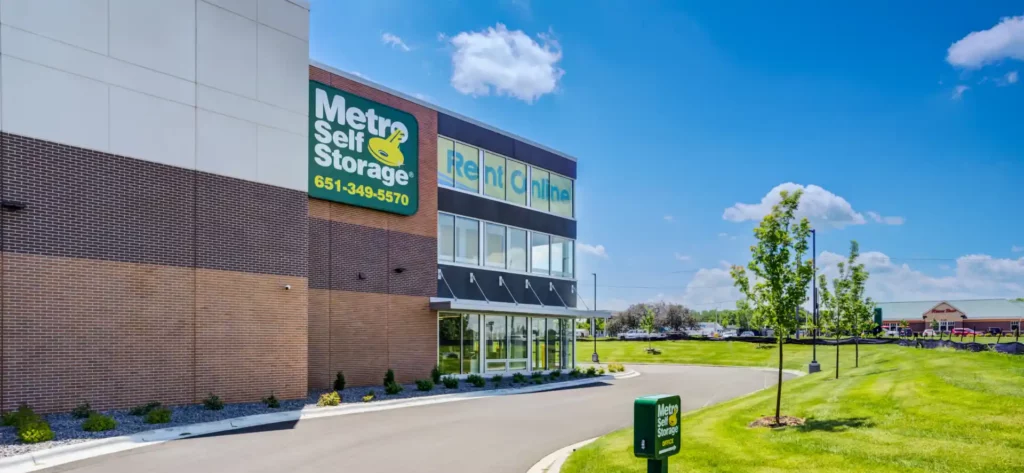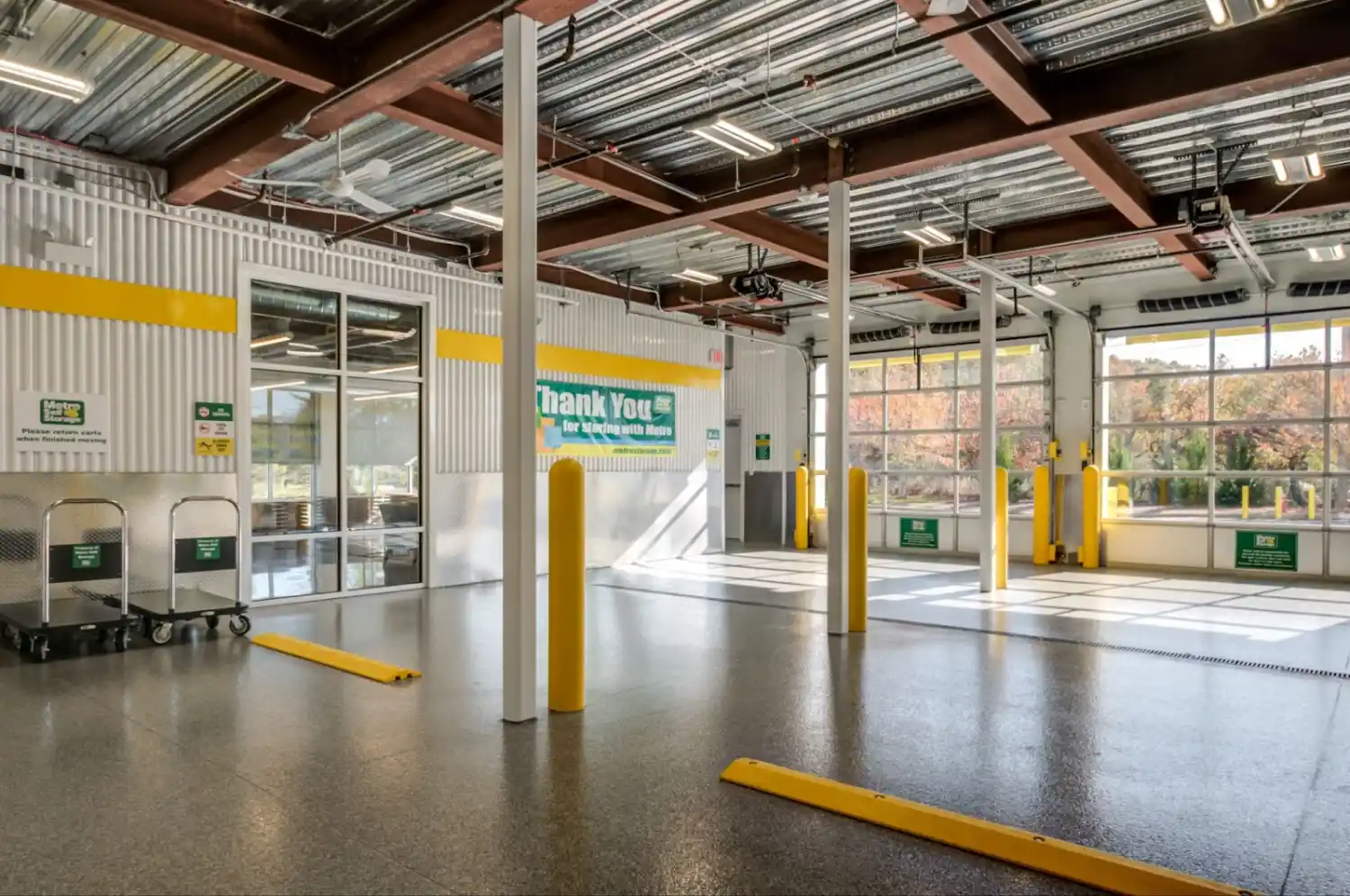
Commercial Leases: A Guide for Business Owners
September 24, 2024 | Business Storage
If you’re in the market for a commercial space to rent for your small business and are struggling to find the best location, you’re not alone. Managing a small business is both rewarding and challenging. It’s beyond a full-time job, from developing a business plan to day-to-day operations. Whether searching for a storefront, office space, or commercial warehouse, now is an excellent time to brush up on your commercial lease know-how to give you the best chance of landing a commercial lease for your dream space.
Commercial Leases for Different Types of Businesses
Commercial spaces encompass a wide variety of properties, which generally include office buildings, business centers, retail stores, and warehouses. And finding and securing the ideal commercial space can be challenging in some markets. But before starting your search, establishing a budget is a good idea. Doing this will help guide you toward the best property type to meet your business needs.
For example, Class A commercial spaces are in newer buildings in prime locations with top-notch amenities and high rental rates. Older or less updated buildings are often considered Class B facilities but are still well-maintained and functional. They may need to be updated—furniture, decor, carpet, and paint. However, Class B commercial spaces are generally well-suited for businesses that need functional, cost-effective office or retail space without the premium price tag of Class A buildings.
Class C commercial spaces will be in older, lower-quality buildings that often need renovations and are sometimes located in less desirable areas. If you don’t have a public-facing business, Class C office space could be a great place to start with your search. These spaces generally have more favorable lease terms, and your landlord may be willing to negotiate on rent. Here are some examples of the types of commercial lease properties.
- Mall Spaces: Mall spaces are storefronts inside large indoor shopping centers, benefiting from high foot traffic. These types of commercial spaces are ideal for retailers relying on walk-in customers.
- Strip Malls: Strip malls feature a row of connected stores with shared parking, often in suburban areas. These commercial spaces are cost-effective and ideal for local businesses like salons, grocery stores, and restaurants.
- Pop-Up Spaces: Short-term lease spaces for seasonal or promotional purposes. Pop-up spaces are frequently located inside malls or other high-traffic areas.
- Industrial and Manufacturing: Facilities designed for production or assembly. These facilities are typically in industrial zones on the edge or outskirts of a town or city, with access to transportation networks.
- Warehouse/Distribution: Large spaces for storage and shipment of goods.
- Flex Spaces: Hybrid spaces that combine office and industrial uses and are popular among startups and small manufacturers.
Pros and Cons of Commercial Leases
Signing a commercial lease offers several advantages for small business owners. One of the most significant benefits is stability. A lease provides a set term, often one to five years, giving business owners the security of knowing their location is locked in for a specific period. This can help with long-term planning and establishing a local customer base, especially for retail businesses. By securing a location for an extended period, you can strategically plan for the future.
However, it’s important to be aware of the potential downsides of commercial leases. Since you don’t own the property, your business can be susceptible to uncontrollable factors and won’t benefit from real estate appreciation in the building over time. Also, pay close attention to built-in annual rent increases, which can strain your business finances, especially in competitive markets.
Additionally, commercial leases can be complex, with terms typically favoring the building owners. Entrepreneurs may also find that leasing in a prime location requires a sizeable upfront commitment in deposits and tenant improvements, which can strain financial resources. Understanding the pros and cons of leasing a commercial space is essential to making an informed decision when choosing a space for your business.
Reasons to Hire a Commercial Real Estate Agent for Your Business Lease
Navigating the complexities of commercial leases can be overwhelming, whether running a company in a big city or a suburb. A commercial real estate agent can help you with the complex details of commercial leases, such as understanding the difference between a gross lease and a triple-net lease and the myriad of other lease types that are out there. A commercial real estate agent also brings expertise and insight into local market trends and can help you secure the best lease terms. In cities like New York, where demand for prime locations is high, an agent can provide access to listings not always available to the public, ensuring you don’t miss out on ideal spaces.
An agent can help you avoid costly mistakes. In Chicago, for instance, leases can involve specific zoning regulations or landlord stipulations that are easy to overlook without professional guidance. A real estate agent will negotiate favorable terms and identify potential red flags in the lease agreement, saving you time and money in the long run.
In a sprawling city like Houston, where commercial real estate spans a broad range of neighborhoods and property types, an agent’s expertise is invaluable in finding a location that matches your business needs. Whether you’re a retailer seeking a high-traffic area or a professional service looking for office space, a commercial agent ensures that your lease aligns with your long-term goals, helping your business grow in the right location.
Not Ready for a Commercial Lease? Metro Self Storage Offers Commercial Storage Solutions

Looking for business storage solutions without the commitment of a long-term lease? Metro Self Storage has you covered. Our month-to-month leasing means you can utilize commercial storage for as long or as little time as you need. You’ll find drive-up warehouse-style spaces, climate-controlled units, extended access hours, and package acceptance, making storing your business inventory, equipment, and documents a breeze. Our expert storage teams are here to assist you, and we offer various unit sizes to accommodate your growing business. Choose Metro Self Storage as your partner in managing your business needs at our conveniently located state-of-the-art facilities.




